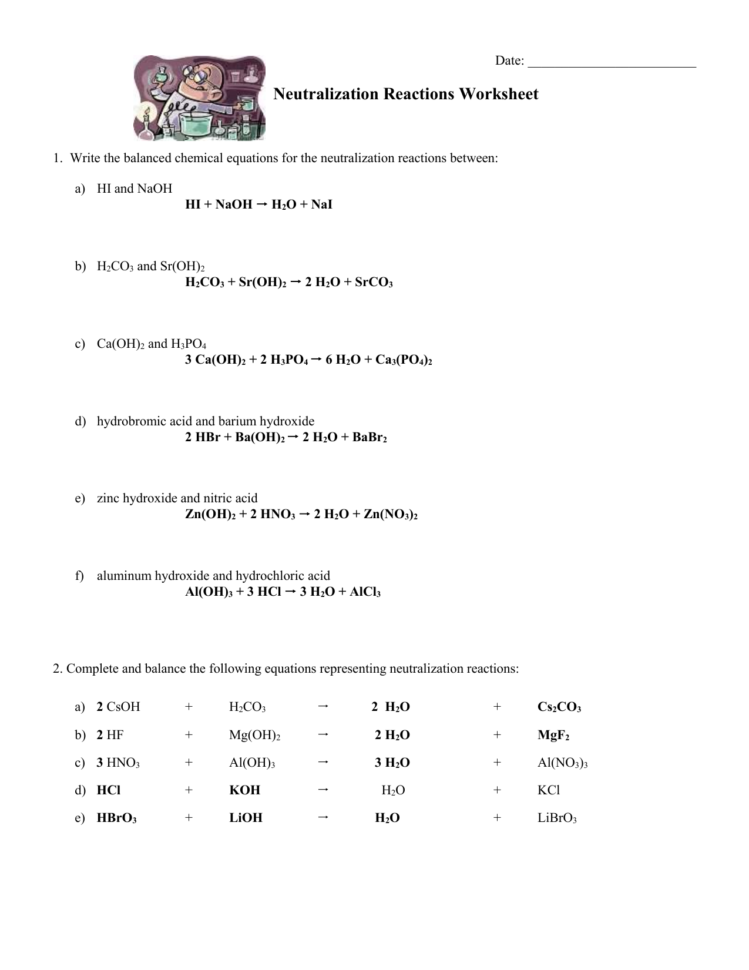Neutralization reactions are chemical reactions that occur when an acid and a base react to form water and a salt. These reactions are important in chemistry as they help us understand how different substances interact with each other. To practice and reinforce your understanding of neutralization reactions, worksheets can be a valuable tool.
A neutralization reactions worksheet typically includes a series of questions and problems that require students to identify the reactants, products, and type of reaction for various neutralization reactions. These worksheets may also involve balancing chemical equations, calculating the amount of products formed, and predicting the products of given reactants.
One common type of question on a neutralization reactions worksheet is to balance the chemical equation for a neutralization reaction. For example, given the reaction between hydrochloric acid (HCl) and sodium hydroxide (NaOH), students would need to balance the equation to show the formation of water (H2O) and sodium chloride (NaCl).
Another type of question may ask students to calculate the amount of a product formed when a certain amount of reactants are used in a neutralization reaction. This involves using stoichiometry to determine the mole ratios of the reactants and products, and then calculating the mass or volume of the products formed.
Students may also be asked to predict the products of a neutralization reaction based on the given reactants. By identifying the properties of the acids and bases involved, students can determine the type of salt that will be formed and whether any additional products, such as water or gases, will be produced.
In conclusion, neutralization reactions worksheets are a valuable resource for practicing and mastering the concepts of acid-base reactions. By working through the problems and questions on these worksheets, students can improve their understanding of how acids and bases react with each other to form new substances. These worksheets help reinforce key concepts in chemistry and prepare students for more advanced topics in the field.
